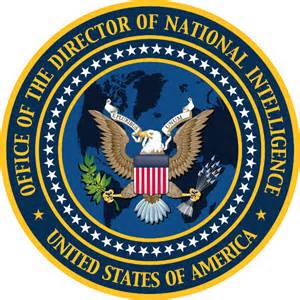CALL FOR PAPERS: Social Media and Online Behavior: Language and Culture Considerations and Challenges for the Intelligence Community
The Foreign Language Program Office of the Office of the Director of National Intelligence (ODNI) and the Culture and Regional Knowledge Expert Group (CRKEG) are pleased to announce a symposium on Social Media and Online Behavior to be held Monday June 8th through Friday June 12th at the Center for Advanced Study of Language. The 2015 CRKEG Symposium Planning Committee invites submission of proposals on the topics relevant to the theme “Social Media and Online Behavior: Language and Culture Considerations and Challenges for the Intelligence Community.” The growth of social media and online networking has provided a new and constantly changing landscape for the collection and analysis of intelligence. This symposium will focus on the linguistic, cultural, and regional knowledge necessary to effectively analyze participants and their activities in online communities and networks. The symposium is open to members of the U.S. Intelligence Community. Funding for any associated travel expenses will be the responsibility of the attendees’ organizations.
CALL FOR PAPERS
Social Media and Online Behavior: Language and Culture Considerations and Challenges for the Intelligence Community - CRKEG Symposium
- Date: Monday 8 June through Friday 12 June 2015
- Location: Center for Advanced Study of Language College Park, MD
Proposal Submission Guidelines
Effective proposals for this symposium will address the building and sustaining of intelligence capabilities for readiness and effectiveness in this changing landscape, while considering the role of language, region, and culture (socio-cultural concepts and processes as well as knowledge of particular cultural groups) knowledge expertise, skills, and tools (LRC) in support of the mission. The CRKEG welcomes proposals that highlight either best practices or challenges in bringing LRC knowledge and skills to bear on this area and also associated technology, policy, training and resource issues that impact the community’s ability to leverage LRC capabilities effectively.
Topics: The following topics are provided to stimulate ideas for potential presenters, and are not meant to be exclusive:
- Trends in online behavior and social interaction within and across culture groups as it affects security concerns
- The varying capacities for analysis by language enabled analysts vs. language professionals
- The use and implications of tactical (rather than comprehensive) language capability and its effects on analysis
- The role of language and culture experts in the fast-changing linguacultural environment of social media and its effects on training, assessment, and intelligence analysis
- The differences or similarities in the capabilities (knowledge, skills and tools) needed for different types of analysis/use (e.g. strategic v. anticipatory)
- The impact of emerging social norms and cultural practices online, and implications on intelligence gathering and analysis of online and “bricks and mortar” communities
- The capabilities of and limitations of technology in addressing and supporting cultural, regional, and linguistic needs in this area
- The challenges to and status of efforts to develop and implement IC strategies and guidance related to language, culture and regional knowledge in a complex and changing environment and in light of diminishing resources and diverse agency needs
- The implications and impact of emerging social media practices on requirements, policy, and strategy, in relation to workforce capabilities in language and CRK
Session Length: We encourage a variety of interactive approaches including panels, interviews, keynote speakers, and individual presentations. Please note
- Long Presentation: 45 min presentation +15 min for Q&A
- Short Presentation: 20 min presentation + 10 mins for Q&A
- Panel Session (3-4 speakers): approx. 10 – 15 min presentations with Q&A time = 60 min total
Required Information:
- TITLE: The topic should be relevant to the conference theme.
- SESSION LENGTH/TYPE: One of the three noted above.
- CONTENT DESCRIPTION: The description must clearly align with the content of the proposal and be in final, publishable format, free of any errors.
- METHODS: This section is limited to a maximum of 150 words and should indicate how information will be shared.
- OUTLINE: Required only for panel submissions. This section should include an outline of the proposed panel, including a schedule for each topic addressed or activity performed.
- PRESENTERS: Name, telephone, email, and organizational affiliation of participants proposed, with a primary POC for the session clearly identified.
- CLASSIFICATION: Classification level of the presentation.
Submission instructions:
Proposals must be submitted in English and in final publishable format. All proposals must be submitted by COB on April 7, 2015. Unclassified submissions should be emailed to Eric Ciliberti (eric.ciliberti@dni.gov), and classified submissions should be emailed to Eric Ciliberti (cilibee@dni.ic.gov) by the deadline. Confirmation of receipt will be emailed following submission. Presenters will be notified by email of the Review Committee’s decision by May 4, 2015. The submission should be print-ready in final publishable format. Use all punctuation, underlining, italics, etc. exactly as you want it to be printed in the program guide. All proposals must be written in third person format avoiding the use of "I" and "we."
Please direct questions concerning this call for proposals to Wes Lippman at WesleyBL@dni.gov or Evelyn Bailey at EvelynB2@dni.gov.
